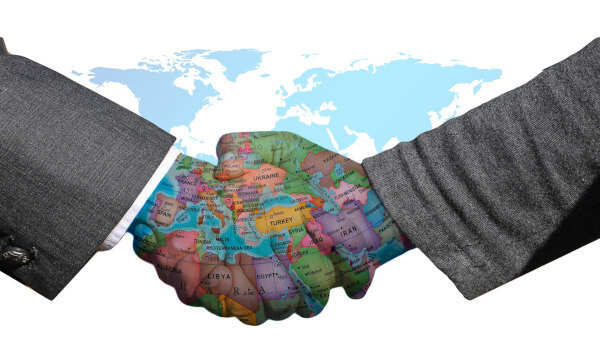"The Role of Global Finance in Shaping the World Economy"
Worldwide Money: An In-Depth Investigation
Worldwide finance represents the interconnected web of financial systems, institutions, markets, and economies across the globe. It plays a crucial role in shaping the global economy by fostering international trade, driving investment, and facilitating growth in both developed and emerging nations. This article explores the complexities of global finance, its key components, the challenges it faces, and the emerging trends reshaping its landscape.
What is Worldwide Money?
Worldwide finance refers to the financial activities and systems that transcend national borders. It encompasses international trade, cross-border investments, foreign exchange markets, and the operations of multinational corporations and financial institutions. By enabling the movement of capital, goods, and services on a global scale, worldwide finance creates opportunities for economic growth and development. However, it also presents challenges related to governance, regulation, and stability.
Key Components of Worldwide Money
International Trade
International trade involves the exchange of goods and services between countries and serves as the foundation of global finance. It relies on mechanisms such as foreign exchange markets, trade financing, and regulatory agreements. Institutions like the World Trade Organization (WTO) play a pivotal role in facilitating trade by promoting free trade agreements and resolving disputes.Foreign Exchange Markets (Forex)
The Forex market, the largest and most liquid financial market in the world, boasts daily trading volumes exceeding $7 trillion. It allows countries, businesses, and individuals to exchange currencies for trade, investment, and tourism. Exchange rate fluctuations significantly influence global finance by affecting trade balances and investment flows.Multinational Corporations (MNCs)
Multinational corporations are key players in global finance, operating across multiple countries and leveraging cross-border investments to maximize profits. Companies such as Apple, Toyota, and Nestlé contribute to global economic integration by establishing supply chains that span continents.International Financial Institutions
Organizations like the International Monetary Fund (IMF), World Bank, and regional development banks play a critical role in global finance. They provide financial assistance, policy advice, and development aid to nations in need, thereby promoting economic stability and growth.Capital Markets
Global capital markets, including stock and bond markets, facilitate the flow of funds between investors and businesses. Cross-border listings, international bonds, and foreign direct investment (FDI) are vital for companies seeking to raise capital from diverse sources.
Challenges in Worldwide Money
Despite its advantages, global finance encounters numerous challenges that threaten its stability and inclusivity:
-
Economic Inequality
The unequal distribution of wealth and resources among nations poses a significant challenge. Developed countries often dominate global financial markets, leaving developing nations with limited access to capital and technology. This exacerbates economic disparities and hinders sustainable growth. -
Currency Volatility
Exchange rate fluctuations create uncertainties for businesses and investors. Nations with volatile currencies often struggle to attract foreign investment and finance their trade deficits. -
Global Financial Crises
Events such as the 2008 global financial crisis highlight the interconnectedness of global finance. A collapse in one region's financial system can trigger a domino effect, destabilizing economies worldwide. Policymakers face ongoing concerns about ensuring systemic resilience. -
Regulatory Challenges
Harmonizing financial regulations across jurisdictions is complex. Regulatory arbitrage, where companies exploit differences in regulations between countries, poses risks to global financial stability. -
Geopolitical Risks
Political tensions, trade wars, and sanctions can disrupt global financial flows. For instance, the Russia-Ukraine conflict has affected energy markets, inflation, and trade dynamics worldwide. -
Climate Finance
Financing climate action remains a critical challenge. Developing nations often lack the resources to transition to green economies, necessitating innovative approaches within global financial systems to support sustainable development.
Emerging Trends in Worldwide Money
-
Digital Transformation
The adoption of digital technologies is revolutionizing global finance. Blockchain, cryptocurrencies, and AI-powered trading algorithms are enhancing efficiency, transparency, and accessibility. Central bank digital currencies (CBDCs) are gaining momentum as countries explore their potential to modernize monetary systems. -
Sustainable Finance
Environmental, Social, and Governance (ESG) investing has emerged as a significant trend in global finance. Investors prioritize companies adhering to sustainable practices, driving a shift towards greener economies. Initiatives such as green bonds and climate funds are financing renewable energy projects and bolstering climate resilience. -
De-globalization and Regionalism
While globalization has defined global finance for decades, recent years have witnessed a shift towards regionalism. Trade blocs like the European Union (EU), ASEAN, and the African Continental Free Trade Area (AfCFTA) are promoting regional integration to reduce dependency on global supply chains. -
Financial Inclusion
Efforts to expand access to financial services in underserved regions are transforming global finance. Mobile banking, microfinance, and fintech innovations are enabling millions of unbanked individuals to participate in the global economy. -
Decentralized Finance (DeFi)
DeFi leverages blockchain technology to create decentralized financial systems, eliminating intermediaries such as banks. These platforms offer new opportunities for cross-border transactions and investments. -
Geopolitical Realignments
Geopolitical dynamics are reshaping global finance. The rise of China as an economic powerhouse and initiatives like the Belt and Road Initiative (BRI) are challenging traditional Western-dominated financial systems.
The Role of Global Cooperation
Addressing the challenges of global finance requires robust international cooperation. Multilateral organizations, including the IMF and World Bank, play a vital role in fostering collaboration. Platforms like the G20 and BRICS facilitate dialogue and consensus-building among major economies.
Effective regulation and oversight are essential for global financial stability. Initiatives like the Basel Accords aim to standardize banking practices, ensuring resilience against financial shocks. Collaborative efforts to tackle issues such as tax evasion, money laundering, and climate finance are critical for sustainable economic growth.
Conclusion
Global finance is the lifeblood of the interconnected world economy, enabling the flow of capital, goods, and services across borders. While it has driven unprecedented growth and development, significant challenges such as economic inequality, geopolitical risks, and regulatory complexities remain.
Emerging trends like digital transformation, sustainable finance, and decentralized systems are reshaping the global financial landscape, offering new opportunities and complexities. To fully harness the potential of global finance, international cooperation, technological innovation, and inclusive policies are essential. By addressing these challenges and embracing change, the global financial system can become a catalyst for equitable and sustainable growth, fostering prosperity for all nations.




